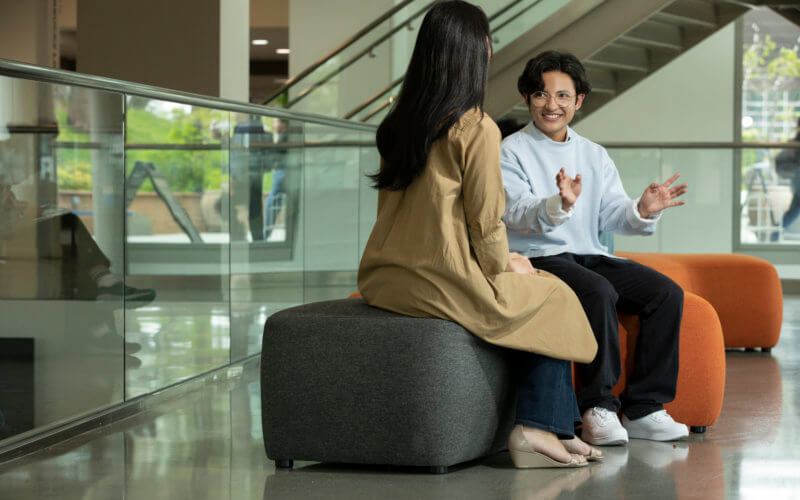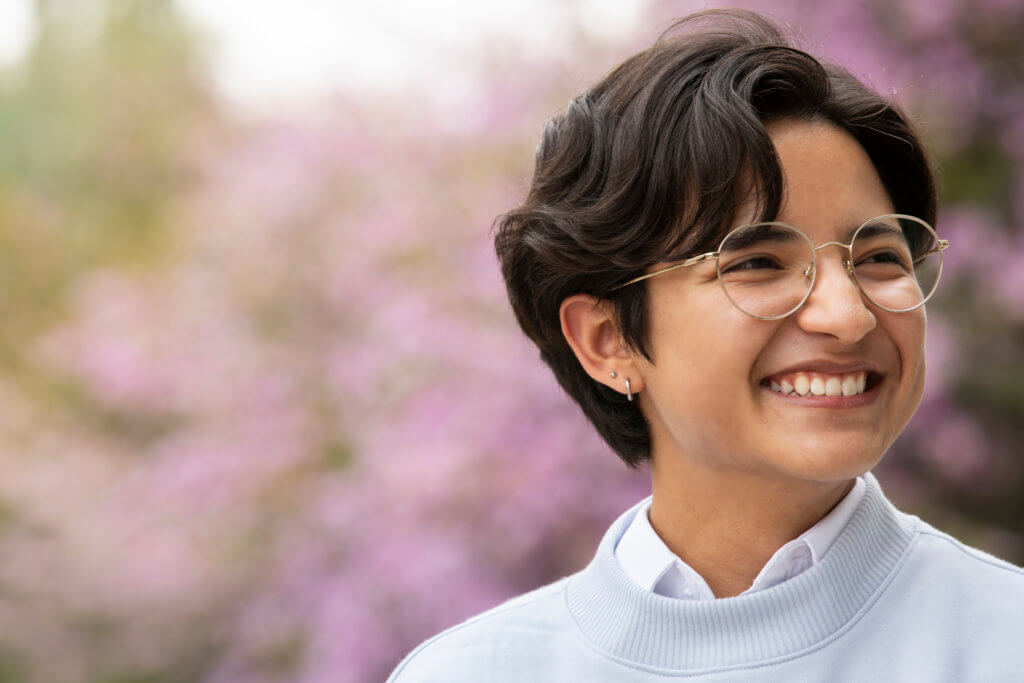
As a teenager, Pauli Cuellar Aguilar searched for queer media that represented him. Instead, he stumbled across queerbaiting, where show creators would hint at gay relationships that were never depicted.
Cal State Fullerton’s Mellon Mays Undergraduate Fellowship program, designed to prepare students to pursue doctorates in the humanities, presented Aguilar with the opportunity and resources (mentoring, workshops, graduate school preparation and and annual stipend) to take a deep dive into the topic.
His consumption of international anime, manga and dramas led him to his research topic — language translation in Japanese and Thai queer media.
“One night while I was rewatching my favorite show, ‘Thai Boys’ Love,’ I decided to turn on the Japanese subtitles,” Aguilar said. “I quickly realized there were many discrepancies in the use of gender markers between the original Thai dialogue and the Japanese translations.”
The Class of 2023 graduate, who is majoring in linguistics and English, aspires to become a translator in the entertainment industry and to interpret digital media and books for international audiences.
As a Mellon Mays fellow and University Honors Program student, Aguilar has presented his research on queer sociolinguists, translation and intercultural communication at CSUF, USC, UC Berkeley and UCLA.
“In my sociolinguistic groundwork of research, I look at how translating queer language can be restrictive for individuals who attempt to demonstrate gender and sexuality expression through the use of pronouns,” Aguilar said.
In the Thai television drama “Kiss Me Again” (2018), two male characters, Pete and Kao, are in a romantic relationship. In their Thai dialogue, the couple uses the same pronouns to speak to each other. However, in the Japanese subtitles, Pete uses hypermasculine pronouns compared to Kao’s semi-masculine pronouns. The Japanese subtitles imply that Pete embodies the male role in their relationship while Kao represents the female role.
“I found that a homosexual relationship can be portrayed as heterosexual by changing their pronouns and characterizing one as feminine and the other as masculine,” Aguilar said. “It is easier and more common to do this in Japanese because of how gender restrictive their pronouns are compared to Thai pronouns, which are more flexible.”

Continuing Queer Media Studies in Graduate School
After graduation, Aguilar will begin his master’s degree in intercultural communication at Srinakharinwirot University in Bangkok, Thailand.
Aguilar chose the university because of its notable alumni in the entertainment industry and its College of Social Communication Innovation’s partnership with GMMTV, the biggest producer of “Thai Boys’ Love” dramas in Thailand.
He hopes to use the university’s connections with GMMTV to continue his research in queer media.
Reimagining an inclusive future for anime and media consumption, Aguilar said, “My dream is to eventually obtain a doctorate and work in academia to expand the field of queer linguistics and queer media studies.”